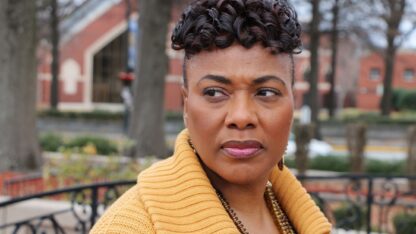Seventy percent of Georgia’s school leaders say poverty is the biggest barrier, outside the classroom, to student success, according to a new analysis from the Georgia Budget and Policy Institute. The study also shows that most schools that earned a ‘D’ or ‘F’ on a state grading system are in high-poverty areas.
Like us on Facebook
However, the report says, it’s possible to improve outcomes for students in those schools. The GBPI’s recommendations include investing in resources for low-income schools; training effective principals; and improving teachers’ salaries. Another effective strategy is fostering the socio-economic integration of schools, says GBPI senior education policy analyst Claire Suggs.
“[You’re] trying to make sure, essentially, that you don’t have schools where 100 percent of the kids are poor,” Suggs says. “That really creates a lot of challenges when you have concentrations of that level of poverty in an individual school.”
Research shows low-income students perform better academically when they attend schools with mixed-income populations.
“It would be very difficult, given current state funding, for districts to do this,” Suggs says. “But given the research on the benefits of this kind of socio-economic integration, kids are more successful in those school settings.”
Some Georgia school systems have taken steps to improve conditions at low-income schools by adding services like after-school programs, extra tutoring and health clinics. Suggs says some districts just can’t afford to do that.
“Some communities have a lot of local resources, you could build partnerships,” she says. “Other communities don’t have a lot of those local non-profits and community agencies. So, they would really need a lot of help from state agencies.”
Meanwhile, Georgia has begun a ‘turnaround’ effort in five school districts. State officials are assessing the 11 schools identified to see what their greatest needs are. Suggs is hopeful those — and other — efforts will help.
“We have a lot of children from low-income families who are struggling with a lot of different issues, and we want them to be successful, we really have to take on that challenge of poverty, and really look at what is happening in school settings to make sure that they’re successful,” she says.









